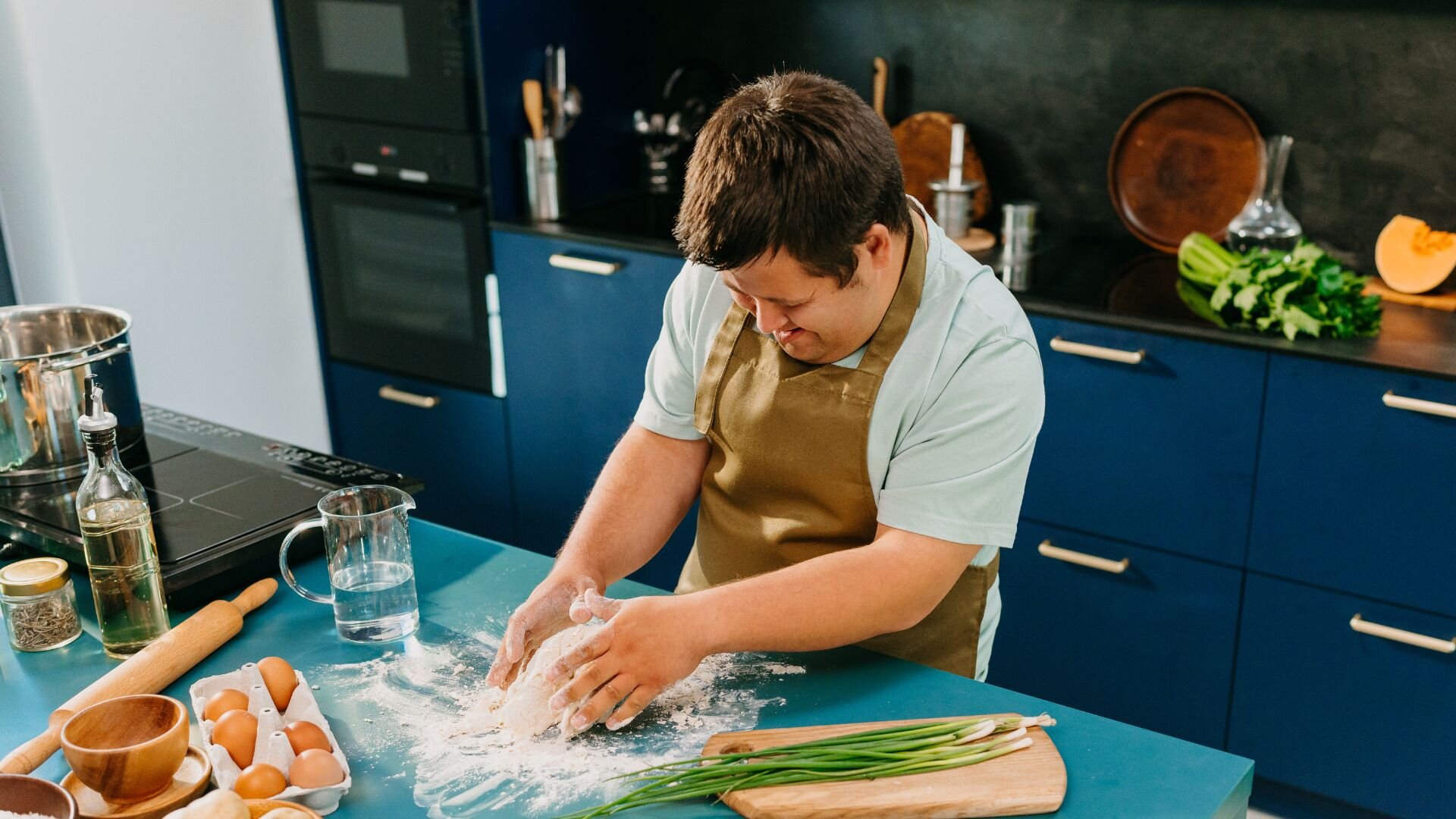Time spent creating in the kitchen improves overall well-being.
Grilled cheese, cut into small pieces and dropped into a warm bowl of cream of tomato soup … that’s the comfort meal I remember as a child. I still crave it when life feels a little off-balance. Maybe it’s the combination of flavors and textures that make me feel better instantly. Or maybe it’s just the simple fact that someone cared enough to make it for me that somehow set my world right again.
According to researcher Jordan Trois, comfort foods can take us back to a feeling of safety and security and “make people feel like they belong.”
Trois was a graduate student at the University of Buffalo when he led a group of researchers to explore why comfort foods have such powerful appeal.
"Throughout everyone's daily lives they experience stress, often associated with our connections with others," Troisi said in this article in Science Daily." Comfort food can serve as a ready-made, easy resource for remedying a sense of loneliness.”
We know sharing food with others is an effective way to build relationships and foster a sense of community. Yet we also understand that eating disorders can be a challenge for some adults with IDD. Relying too heavily on comfort foods might escalate the problem, just as it can in people without disabilities. Fortunately, it seems the creative act of cooking or baking itself can be a powerful mood booster. And new scientific studies show it might actually help ease mental health challenges in some people.
Creativity is the main ingredient
John Whaite, a previous winner of the wildly popular Great British Bake Off, is a firm believer in the power of baking to help manage his own mental health. Whaite, who was diagnosed with manic depression years ago, explains:
"When I'm in the kitchen, measuring the amount of sugar, flour, or butter I need for a recipe or cracking the exact number of eggs - I am in control,” he said in an interview with the BBC. “That's really important as a key element of my condition is a feeling of no control.”
“Cooking or baking has become a common cure for stress or feeling down,” Danny Lewis writes in The Smithsonian. “ … there might actually be some science as to why small creative tasks might make people feel better. According to a new study, a little creativity each day can go a long way towards happiness and satisfaction in the bustle of daily life.”
That study, published in the Journal of Positive Psychology, found that people who spend time doing small, creative projects like baking and cooking were more relaxed overall and reported being happier in their day-to-day lives.
Baking your cake … and eating it too
Given all this evidence, it’s no surprise that cooking and baking sites saw huge surges of interest during the early stages of the COVID-19 pandemic, as people spent more time at home fixing their own meals. Banana bread became a running topic on social media, and shoppers found yeast and other baking supplies at a premium.
“I think that there is this desire for people to express themselves and it’s really hard to do that when you can’t communicate and have this back and forth with others,” said Clemence Gossett, the founder and co-owner of The Gourmandise School. “We have lost that in a way,” she said during the early lockdowns. “There’s this wonderful tangibility with baking and lets you work out emotions and express yourself,” she continued in an article in The Guardian.
Happily, there is a growing awareness that creating food is an act of self-care … and there is also a growing body of recipes and food prep sites geared for people with IDD.
Anna Moyer created the website Accessible Chef more than 10 years ago, to help people with intellectual disabilities learn to cook. Inspired by her brother Sam, who has Down Syndrome, the site is packed with recipes with clear instructions and step-by-step photos.
From a guacamole dip to personal pizzas to fun Jello shark cups for dessert, Moyer offers a collection of recipes that make cooking and baking more accessible and successful. Many of the recipes, like her vegetable soup recipe, make it fun and easy to combine healthy eating with a sense of accomplishment in the kitchen.
Another great resource is Look, Cook, and Eat, a paid digital subscription service with cooking videos and tons of recipes (and they offer a free 30-day trial). Australia’s Endeavour Foundation also has a lot of great ideas, with cooking videos geared toward people with IDD who want to level up their game in the kitchen.
Helping your Loved One explore their creative side might just start in the kitchen. We encourage you to check out these resources and see what you can bake up together. The proof might just be in the pudding after all!
Read more:
Association for Psychological Science. "Chicken soup for the soul: Comfort food fights loneliness." Retrieved December 15, 2021, from www.sciencedaily.com.
Gammon, Katharine. “Kneading to relax? How coronavirus prompted a surge in stress baking.” The Guardian. Retrieved January 2, 2002, from www.theguardian.com.
Lewis, Danny. “Feeling down? Scientists say cooking and baking could help you feel better.” The Smithsonian Magazine. Retrieved December 17, 2021, from www.smithsonianmag.com.
Montecatini Eating Disorders Treatment Center. “The Connection Between Disabilities and Eating Disorders.” Retrieved January 3, 2022, from www.eatingdisorderhope.com.
Find recipes, cooking videos, and step-by-step instructions for people with IDD at these websites:

